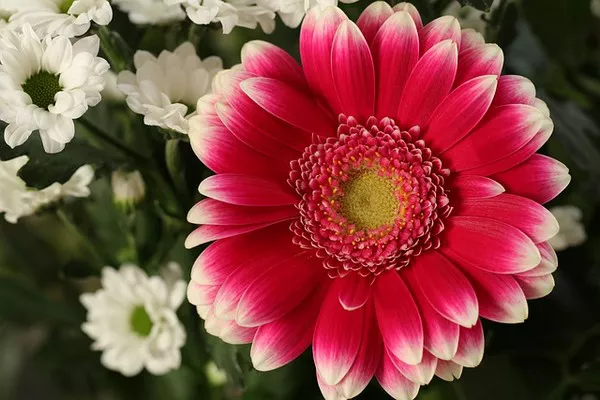Mosquitoes, those pesky insects that invade our outdoor spaces and disrupt our peace, seem to have an innate ability to find us no matter where we go. From buzzing in our ears to leaving itchy bites, their presence can quickly turn a pleasant evening into an uncomfortable ordeal. While there are various methods to repel mosquitoes, from chemical sprays to electronic devices, a more natural and aesthetically pleasing approach involves harnessing the power of flowers.
Introduction to Mosquito Repellent Flowers
Flowers, with their vibrant colors and delicate fragrances, have long been cherished for their beauty. However, some flowers possess properties that extend beyond mere aesthetics—they can act as natural repellents against mosquitoes. Understanding which flowers mosquitoes dislike can not only enhance the ambiance of outdoor spaces but also help in creating a more mosquito-free environment.
The Science Behind Mosquito Repellent Flowers
Before delving into specific flowers, it’s essential to understand the science behind their mosquito-repelling properties. Mosquitoes are drawn to humans and animals by various cues, including body heat, carbon dioxide emissions, and certain scents. However, certain compounds found in plants can interfere with mosquitoes’ ability to detect these cues, thus repelling them.
One such compound is citronella, commonly found in plants like citronella grass (Cymbopogon nardus) and citronella geranium (Pelargonium citrosum). Citronella emits a strong fragrance that masks the scent of humans and animals, making it difficult for mosquitoes to locate their targets. Additionally, plants like marigolds (Tagetes spp.) contain pyrethrum, a natural insecticide that repels mosquitoes and other insects.
Top Mosquito-Repellent Flowers
1. Lavender (Lavandula spp.): Known for its calming aroma and beautiful purple blooms, lavender is a favorite among gardeners and homeowners alike. However, mosquitoes detest the scent of lavender, making it an excellent choice for repelling these unwanted pests. Planting lavender near outdoor seating areas or entry points to the home can help keep mosquitoes at bay.
2. Rosemary (Rosmarinus officinalis): In addition to adding flavor to culinary dishes, rosemary also serves as a natural mosquito repellent. Its woody scent, reminiscent of pine, camouflages the scent of humans and deters mosquitoes from landing on or near it. Consider planting rosemary in pots and placing them around outdoor gathering spaces for added protection.
3. Marigold (Tagetes spp.): With their bright orange and yellow blooms, marigolds not only add a pop of color to gardens but also repel mosquitoes with their pyrethrum content. This natural insecticide disrupts mosquitoes’ nervous systems, discouraging them from lingering in the vicinity. Planting marigolds in flower beds or placing pots of them on patios can help keep mosquitoes away.
4. Chrysanthemum (Chrysanthemum spp.): Chrysanthemums, often referred to as mums, contain pyrethrin, a compound commonly used in commercial insect repellents. The natural pyrethrin found in chrysanthemums is highly effective at repelling mosquitoes and other insects, making them a valuable addition to any mosquito control strategy.
5. Basil (Ocimum basilicum): Beyond its culinary uses, basil possesses natural mosquito-repelling properties. The strong aroma of basil plants, particularly varieties like lemon basil and cinnamon basil, can confuse and deter mosquitoes. Planting basil in pots and placing them near entry points to the home or outdoor seating areas can help create a mosquito-free zone.
6. Catnip (Nepeta cataria): While catnip may attract feline friends, it repels mosquitoes with equal effectiveness. Nepetalactone, the compound responsible for cats’ euphoric response to catnip, also acts as a potent mosquito repellent. Planting catnip in gardens or rubbing crushed leaves directly onto the skin can provide natural protection against mosquitoes.
Tips for Incorporating Mosquito-Repellent Flowers into Your Garden
Now that we’ve explored some of the top mosquito-repellent flowers, it’s essential to consider how to incorporate them into your garden effectively. Here are some tips to help you maximize their mosquito-repelling potential:
1. Strategic Placement: Identify key areas where mosquitoes tend to congregate, such as around standing water or near dense vegetation. Plant mosquito-repellent flowers strategically in these areas to create a barrier against mosquitoes.
2 .Companion Planting: Take advantage of companion planting techniques by intermixing mosquito-repellent flowers with other plants in your garden. Not only will this enhance the aesthetic appeal of your garden, but it will also provide comprehensive mosquito control.
3. Container Gardening: If space is limited or you’re gardening on a balcony or patio, opt for container gardening with mosquito-repellent flowers. Place pots of flowers strategically around outdoor seating areas to create a protective perimeter.
4. Maintenance: Regular maintenance, including watering, pruning, and fertilizing, is essential for ensuring the health and vitality of mosquito-repellent flowers. Be sure to remove any dead or dying foliage promptly to prevent the buildup of stagnant water, which can attract mosquitoes.
5. Variety: Incorporate a variety of mosquito-repellent flowers into your garden to maximize their effectiveness. Different flowers contain varying concentrations of repellent compounds, so diversifying your plant selection can provide comprehensive mosquito control.
Conclusion
Creating a mosquito-free outdoor environment doesn’t have to involve harsh chemicals or expensive gadgets. By harnessing the power of mosquito-repellent flowers, you can naturally deter these pesky insects while enhancing the beauty of your outdoor spaces. From fragrant lavender to aromatic rosemary, there are numerous flowers that mosquitoes hate, allowing you to enjoy your time outdoors without the constant buzz of unwanted visitors. So why not transform your garden into a sanctuary free from mosquito bites with the simple addition of these natural repellents?


